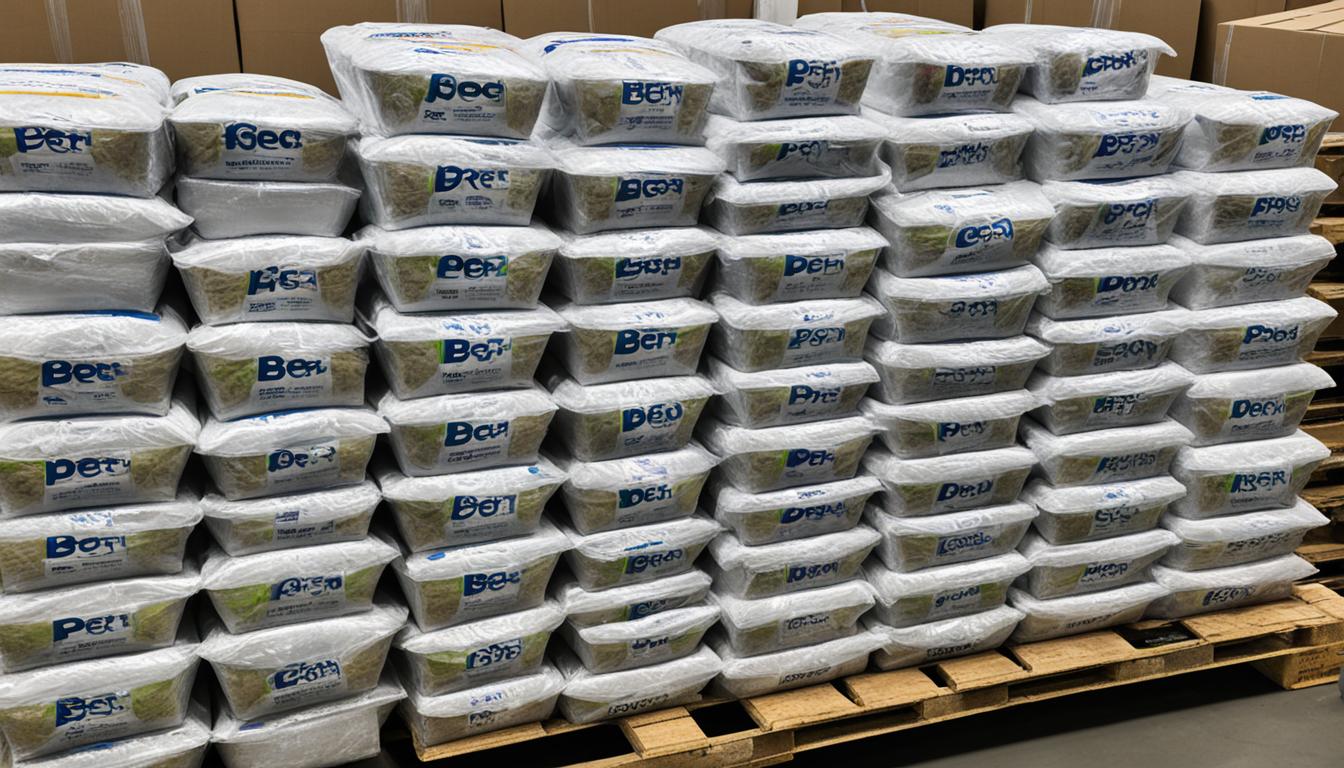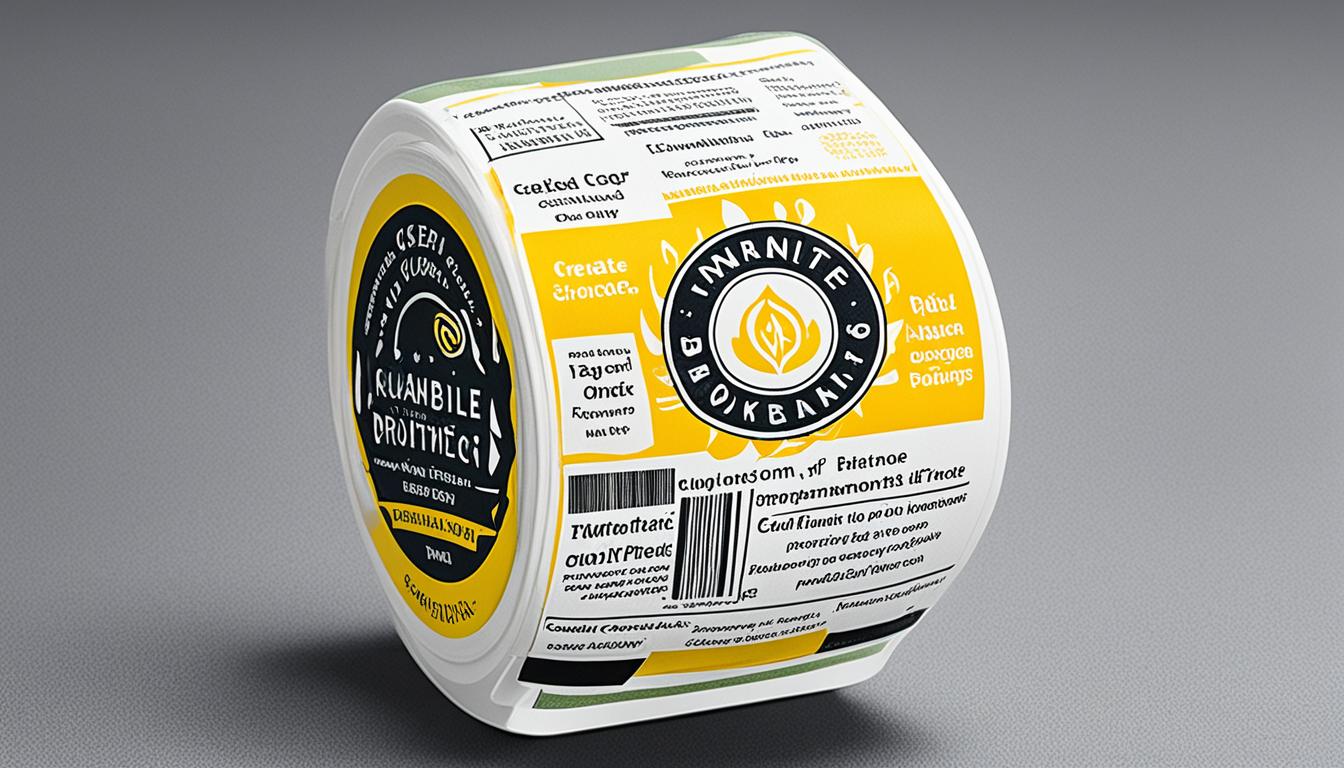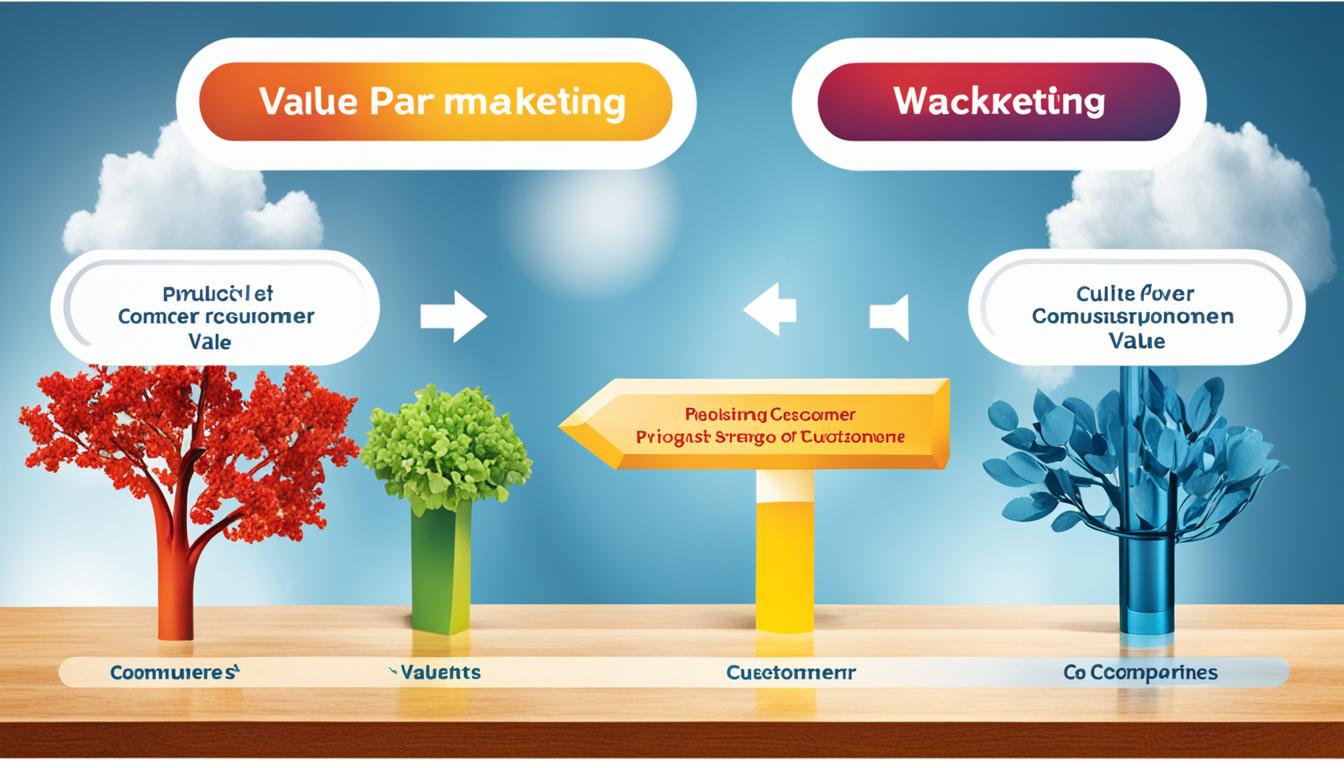A marketing retainer is an agreement between a company and a marketing agency that involves a monthly or quarterly budget in exchange for a range of services. It allows the agency to become familiar with the brand and help achieve long-term business goals. This relationship is often referred to as the “Agency of Record” and provides companies with access to an experienced marketing department without having to build one themselves.
Key Takeaways:
- A marketing retainer is a contractual agreement between a company and a marketing agency.
- It involves a monthly or quarterly budget in exchange for a variety of marketing services.
- The purpose is to establish a long-term relationship and achieve business goals.
- Companies can access the expertise of a marketing department without building one internally.
- A marketing retainer provides predictability in costs and priority service from the agency.
What is a Marketing Retainer?
A marketing retainer is a long-term agreement between a company and a marketing agency. It involves a monthly or quarterly fee in exchange for a variety of services. This allows the agency to function as the company’s marketing and advertising department. The scope of work in a retainer is defined but flexible, allowing for adjustments as needed.
| Benefits of a Marketing Retainer: |
|---|
| Access to experienced marketing professionals |
| Consistent and reliable marketing support |
| Defined scope of work with flexibility |
| Predictable costs |
How does a Marketing Retainer Work?
In a marketing retainer, the client and agency enter into an agreement that includes a set budget for monthly services. This budget is allocated to various marketing activities aimed at achieving the client’s goals. The agency provides a comprehensive range of services as part of the retainer, customized to meet the client’s needs and objectives.
These services typically include:
- Media Planning: The agency develops a strategic approach to media placement, identifying the most effective channels and platforms to reach the target audience.
- Content Creation: The agency produces engaging and relevant content tailored to the client’s brand and marketing objectives. This content could include blog posts, articles, social media updates, videos, and more.
- Sponsorships: The agency identifies and negotiates sponsorship opportunities that align with the client’s brand and target audience, helping to increase brand visibility and reach.
- Traditional Advertising: The agency creates and executes traditional advertising campaigns, such as print ads or radio spots, to reach a broader audience and drive brand awareness.
- Strategic Planning: The agency collaborates with the client to develop a comprehensive marketing strategy aligned with the client’s business goals. This includes identifying target markets, setting specific objectives, and determining the best tactics to achieve them.
- Reputation Management: The agency monitors and manages the client’s online reputation, ensuring positive brand sentiment and addressing any negative feedback or reviews.
- Search Engine Optimization (SEO): The agency optimizes the client’s website and content to improve search engine rankings, drive organic traffic, and increase online visibility.
- Pay-Per-Click (PPC) Campaigns: The agency creates and manages paid advertising campaigns, such as Google Ads or social media ads, to target specific keywords or demographics and drive immediate traffic to the client’s website.
Throughout the retainer engagement, the agency works closely with the client, providing regular reports and updates on campaign performance, progress towards goals, and any necessary adjustments. The agency also remains available to address any immediate needs or short-term goals that may arise during the retainer period.
Benefits of a Marketing Retainer for Businesses
Marketing retainers offer several key benefits for businesses. By entering into a retainer agreement with a marketing agency, businesses can enjoy predictable costs, priority service, front of mind presence, better value, and bus-proofing.
Predictable Costs
One of the significant advantages of a marketing retainer is the ability to have clear visibility into monthly costs. With a set budget outlined in the retainer agreement, businesses can better plan and allocate their marketing resources without unexpected expenses.
Priority Service
When businesses engage in a marketing retainer, they gain priority access to the services and expertise of the agency. This means that their marketing needs and campaigns will receive immediate attention and dedicated support, ensuring efficient execution and timely delivery.
Front of Mind Presence
With a marketing retainer, the agency becomes intimately familiar with the business, its brand, and its objectives. This constant presence allows the agency to proactively strategize and provide valuable insights, ensuring that the business remains top-of-mind for marketing opportunities and initiatives.
Better Value
Retainers enable businesses to derive better value from their marketing investment. As the agency develops a deep understanding of the business and its target audience, they can tailor their services to be more efficient and effective. By focusing on the specific needs and goals of the business, the agency can deliver optimal results within the agreed-upon budget.
Bus-Proofing
In the event that a key marketing personnel is unavailable or leaves the company, a marketing retainer ensures that marketing efforts continue seamlessly. The agency, with its extensive knowledge of the business, can continue driving marketing initiatives forward, preventing any disruptions caused by personnel changes.
Overall, a marketing retainer offers businesses a comprehensive solution that combines expertise, reliability, and cost-effectiveness. By leveraging a retainer, businesses can navigate the ever-evolving marketing landscape with confidence and enjoy the benefits of a dedicated marketing partner.
Benefits of a Marketing Retainer for Agencies
Marketing retainers provide not only advantages for businesses but also for agencies themselves. By entering into a marketing retainer agreement, agencies can deliver better service, increase their focus, and allocate resources more efficiently. This enables them to optimize their performance and provide exceptional value to their clients.
With a marketing retainer in place, agencies have the time and resources to focus on delivering their best work and serving their clients effectively, rather than constantly seeking new business. This allows them to deepen their understanding of their clients’ needs and industry, resulting in more tailored and impactful marketing strategies.
Moreover, marketing retainers enable agencies to plan their resource allocation more efficiently. They can strategically assign resources, ensuring smooth workflows and quicker turnaround times for client projects. This streamlined approach not only enhances the agency’s productivity but also increases client satisfaction.
To summarize, the benefits of a marketing retainer for agencies include:
- Delivering better service
- Increased focus on clients
- Better resource allocation
By capitalizing on these advantages, agencies can foster stronger relationships with their clients, consistently deliver high-quality work, and position themselves as trusted partners in their clients’ marketing efforts.
| Benefits of a Marketing Retainer for Agencies |
|---|
| Delivering better service |
| Increased focus on clients |
| Better resource allocation |

When to Use a Marketing Retainer
A marketing retainer can be a highly effective strategy for companies that require ongoing marketing support and have a budget dedicated to advertising and marketing initiatives. By entering into a retainer agreement, businesses can benefit from consistent access to a dedicated marketing team and a range of services tailored to their specific needs.
Here are some key circumstances where utilizing a marketing retainer can be particularly advantageous:
- Ongoing Marketing Support: A marketing retainer is ideal for companies that require continuous marketing assistance. Whether it’s managing social media platforms, creating content, or implementing SEO strategies, a retainer ensures that businesses have access to the necessary resources on an ongoing basis.
- Quick Turnarounds: Companies that frequently require fast responses and quick turnarounds for their marketing initiatives can benefit from a retainer arrangement. With a retainer, there is no need to go through the process of negotiating and signing new contracts for each project. Instead, the marketing agency is already familiar with the client’s needs and can deliver timely solutions.
- Ongoing Creative Assets: For businesses that require a steady stream of creative assets, such as graphics, videos, or blog posts, a marketing retainer ensures a consistent flow of high-quality content. The agency can allocate resources specifically for creating and delivering these assets within the agreed-upon timeframes.
- Managing Various Media Platforms: Companies that operate across multiple media platforms, such as digital advertising, traditional media, and social media, can benefit from a marketing retainer. The agency can provide comprehensive management and coordination across these different channels, ensuring consistent messaging and a cohesive brand presence.
- Projects with Long Timelines and Diverse Services: A marketing retainer is advantageous when companies have complex projects that require a variety of services over an extended period. The retainer agreement allows for flexibility in allocating resources and adapting strategies as the project progresses, ensuring a comprehensive and integrated approach.
- Ongoing Content Marketing Campaigns: Content marketing requires consistency and long-term planning. With a marketing retainer, businesses can establish a sustainable content marketing strategy that includes regular blog posts, email campaigns, and other content creation initiatives. The agency can develop and implement an editorial calendar, ensuring a consistent flow of engaging content.
Using a marketing retainer can provide businesses with the flexibility and expertise needed to achieve their marketing goals effectively. Whether it’s ongoing support, quick turnarounds, diverse services, or managing various media platforms, a marketing retainer offers a strategic partnership that aligns with a company’s long-term marketing objectives.
When Not to Use a Marketing Retainer
A marketing retainer may not be suitable for every company or marketing situation. Here are some scenarios where a marketing retainer may not be the best choice:
1. Limited Budget for Marketing Activities
If a company has a limited budget for marketing activities, a marketing retainer may not be feasible. Retainers typically involve an ongoing commitment and can require a significant investment. In such cases, companies may need to explore more cost-effective marketing options that align with their budget constraints.
2. Specific Project Requirements
If a company has specific project requirements that are not ongoing or require a one-time execution, a marketing retainer may not be necessary. Retainers are designed for ongoing support and long-term collaboration, so companies with ad hoc or short-term projects may find other engagement models or project-based services to be a better fit.
3. Minimal Ongoing Marketing Needs
Companies with minimal ongoing marketing needs may not require a marketing retainer. For instance, a small business with a well-established clientele and limited marketing initiatives may not benefit from the ongoing services provided under a retainer. In such cases, companies may choose to engage in one-time marketing projects or seek intermittent marketing support when required.
4. Minimal Advertising Spend
Companies that do not allocate a significant portion of their budget to advertising may not necessarily require a marketing retainer. Retainers often include services related to advertising, media planning, and campaign management. If a company’s advertising spend is minimal or if other marketing strategies take precedence, alternative marketing solutions may be a better fit.
In summary, while marketing retainers offer numerous advantages, it is essential to carefully evaluate the company’s specific needs, budget, and ongoing marketing requirements to determine if a retainer is the right choice.

| When Not to Use a Marketing Retainer | Scenarios |
|---|---|
| Limited Budget for Marketing Activities | A company has budget constraints that make a marketing retainer unaffordable. |
| Specific Project Requirements | The company has project-specific marketing requirements that are not ongoing or require a one-time execution. |
| Minimal Ongoing Marketing Needs | A company has minimal ongoing marketing needs, making a retainer unnecessary. |
| Minimal Advertising Spend | The company does not spend a significant amount on advertising, reducing the need for a retainer. |
What Services are Included in a Marketing Retainer?
A marketing retainer offers a comprehensive range of services tailored to the specific needs of the client. These services are implemented within the budget of the retainer, providing businesses with access to a full suite of marketing solutions. Key services typically included in a marketing retainer are:
1. Media Planning and Management
Effective media planning and management ensure that the client’s advertising and promotional messages reach the target audience through strategic placement across various channels. It involves identifying the most appropriate media platforms, negotiating media rates, and managing media campaigns to maximize reach and impact.
2. Content Creation
Compelling and engaging content is integral to any successful marketing strategy. A marketing retainer often includes services to create relevant and persuasive content across multiple channels, such as website copy, blog articles, social media posts, email newsletters, and video scripts.
3. Sponsorships and Contest Management
Securing sponsorships and organizing contests can be powerful marketing initiatives to increase brand awareness and engage target audiences. A marketing retainer may encompass services such as identifying sponsorship opportunities, negotiating agreements, and managing the execution of sponsorships and contests.
4. Traditional Advertising
While digital marketing has gained prominence, traditional advertising remains relevant and effective for many businesses. A marketing retainer can include traditional advertising services like print advertisements, TV and radio commercials, outdoor billboards, and direct mail campaigns.
5. Strategic Planning and Campaigns
A marketing retainer often involves strategic planning to define the long-term marketing objectives and develop comprehensive campaigns to achieve them. This includes market research, competitor analysis, messaging development, and campaign execution across different marketing channels.
6. Reputation Management
A positive online reputation is vital for any business. Marketing retainers frequently incorporate reputation management services, which involve monitoring and managing online reviews, responding to customer feedback, and mitigating any potential reputation issues that could harm the client’s brand image.
7. Search Engine Optimization (SEO)
Search Engine Optimization (SEO) is essential for improving a website’s visibility on search engine results pages. A marketing retainer may include SEO services such as keyword research, on-page optimization, content optimization, technical SEO enhancements, and monitoring of search engine rankings.
8. Pay-Per-Click (PPC)
Pay-Per-Click (PPC) advertising allows businesses to target specific audiences and pay only when users click on their ads. Marketing retainers often encompass PPC services, including keyword research, ad creation, campaign management, tracking, and optimization to maximize the return on investment.
A marketing retainer package combines these essential services, tailored to the client’s goals and objectives, providing a comprehensive and cost-effective solution for ongoing marketing needs. Companies benefit from a dedicated marketing team working within the scope of the retainer, allowing them to focus on other core aspects of their business.
How Much Does a Marketing Retainer Cost?
The cost of a marketing retainer can vary depending on the agency and the scope of services. Retainer fees are typically determined based on the monthly or quarterly services provided. The cost can range from a few thousand dollars to tens of thousands of dollars per month, depending on the agency’s expertise and the client’s specific needs.
When considering the cost of a marketing retainer, it’s important to factor in the value and expertise the agency brings to the table. A higher cost may indicate a more experienced agency with a proven track record of delivering results. It’s crucial to align the cost with the desired outcomes and business goals.
When negotiating a marketing retainer, it’s recommended to have a clear understanding of the services included and any additional costs that may arise. This ensures transparency and prevents any unexpected expenses in the future.
Factors Affecting Marketing Retainer Costs
- Experience and reputation of the marketing agency
- Complexity and scope of the desired marketing services
- Target market and industry competitiveness
- Geographical location
- Length and terms of the retainer agreement
By carefully considering these factors and consulting with potential marketing retainer agencies, businesses can make an informed decision regarding the cost of a marketing retainer that best aligns with their needs and budget.
How to Determine if Your Marketing Retainer is Working?
The effectiveness of a marketing retainer can be measured by analyzing key performance indicators (KPIs) that align with the client’s marketing goals. Tracking these metrics allows you to gauge the success of your retainer marketing strategy and make data-driven decisions for future campaigns. The following KPIs are essential to evaluate the performance of your marketing retainer:
- Website Traffic: Monitor the number of visitors to your website to assess the impact of your marketing efforts. Increased traffic indicates that your retainer is generating interest and driving users to your online platforms.
- Lead Generation: Evaluate the number of qualified leads generated through your retainer marketing activities. A higher volume of leads indicates that your strategy is effectively attracting and engaging potential customers.
- Sales: Track the conversion rate from leads to actual sales. This metric directly measures the revenue generated from your retainer marketing efforts, providing valuable insights into your retainer’s return on investment.
- Brand Awareness: Measure brand recognition and recall by assessing metrics such as social media reach, press mentions, and search engine visibility. Strong brand awareness signifies that your retainer is successfully raising your company’s profile in the market.
Additionally, it is crucial to establish open lines of communication with your marketing agency to receive regular updates and reports on the progress of your retainer. This ensures transparency and allows for adjustments if needed. By analyzing these KPIs and maintaining open communication, you can effectively determine whether your marketing retainer is delivering the desired results.
Conclusion
Marketing retainers offer businesses the opportunity to access a full-service marketing department without the need to build one themselves. With a range of services tailored to the company’s goals and budget, retainers provide numerous benefits for businesses. These include predictable costs, priority service, and better value. By partnering with an agency on a retainer basis, businesses can ensure that their marketing needs are consistently met with high-quality service and valuable expertise.
Agencies, too, benefit from marketing retainers. They are able to deliver better service to their clients, as the retainer model allows for increased focus and better resource allocation. With a retainer in place, agencies can dedicate their time and energy to serving their clients’ marketing needs without the constant pressure of seeking new business. This results in enhanced productivity and quicker turnaround times.
When considering a marketing retainer, it is crucial for businesses to carefully evaluate their marketing needs, budget, and ongoing goals. By aligning these factors with the services provided by the agency, businesses can ensure a successful partnership. Additionally, regular evaluation of the retainer’s effectiveness based on key performance indicators (KPIs) is essential to measure the desired results. periodic review helps to determine whether the retainer is contributing to the company’s overall marketing objectives.
FAQ
What is a marketing retainer?
A marketing retainer is a long-term agreement between a company and a marketing agency that involves a monthly or quarterly fee in exchange for a range of services.
How does a marketing retainer work?
In a marketing retainer, the client and agency agree on a set budget for monthly services. The agency provides various services tailored to the client’s goals and implements them within the retainer’s budget.
What are the benefits of a marketing retainer for businesses?
Marketing retainers offer benefits such as predictable costs, priority service, better value, and continuity of marketing efforts even if a key person is unavailable.
What are the benefits of a marketing retainer for agencies?
Marketing retainers allow agencies to deliver better service, increase focus on client work, and allocate resources more efficiently, resulting in smoother workflows and quicker turnaround times.
When should a company use a marketing retainer?
Companies should consider using a marketing retainer when they need ongoing marketing support, have a budget for advertising and marketing initiatives, require quick turnarounds, ongoing creative assets, or assistance in managing various media platforms.
When should a company not use a marketing retainer?
A marketing retainer may not be suitable for companies with a limited marketing budget, specific project requirements, minimal ongoing marketing needs, or those that do not spend much on advertising.
What services are included in a marketing retainer?
Some common services included in a marketing retainer are media planning and management, content creation, sponsorships and contest management, traditional advertising, strategic planning, reputation management, search engine optimization (SEO), and pay-per-click (PPC) campaigns.
How much does a marketing retainer cost?
The cost of a marketing retainer can vary depending on the agency and the scope of services. Retainer fees are typically determined based on the monthly or quarterly services provided, ranging from a few thousand dollars to tens of thousands of dollars per month.
How can you determine if your marketing retainer is working?
The effectiveness of a marketing retainer can be determined by measuring key performance indicators (KPIs) related to your marketing goals, such as website traffic, lead generation, sales, and brand awareness. Regular updates and reporting from the agency are important for tracking progress.
Conclusion:
Marketing retainers offer businesses the opportunity to access a full-service marketing department without the need to build one themselves. They provide a range of services tailored to the company’s goals and budget. Retainers offer benefits such as predictable costs, priority service, and better value for businesses. Agencies benefit from delivering better service, increased focus, and better resource allocation. When deciding to use a marketing retainer, it is important to consider the company’s marketing needs, budget, and ongoing goals. Regular evaluation of the retainer’s effectiveness based on KPIs is important to ensure the desired results are being achieved.







